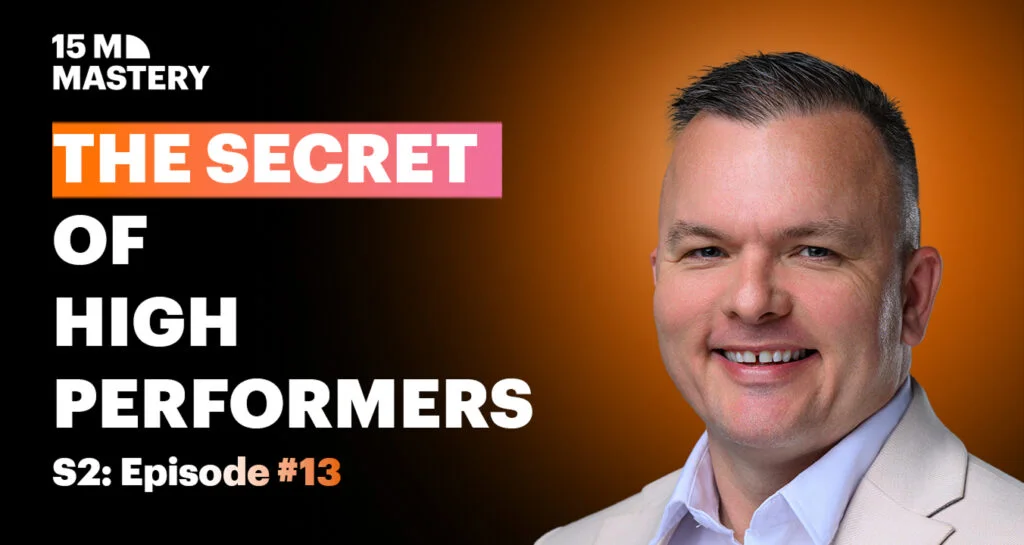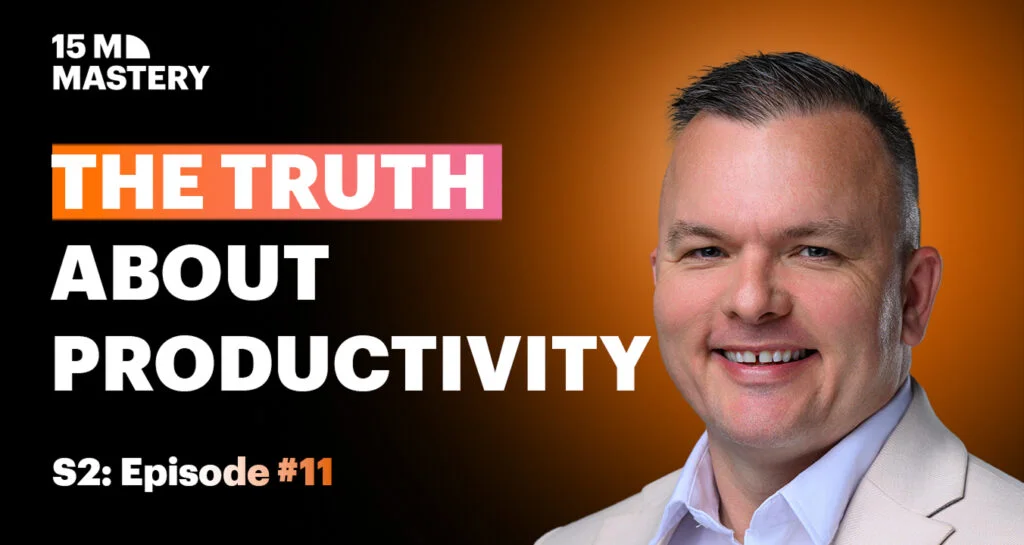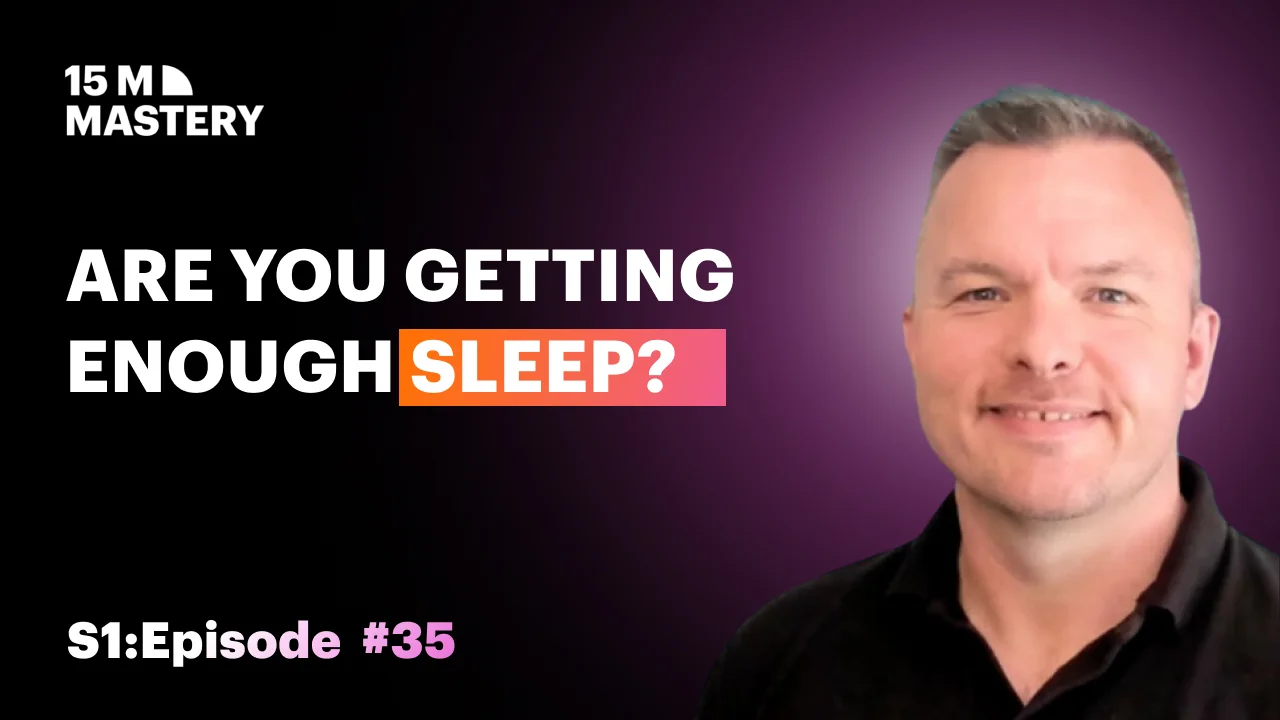How to Optimise Your Energy: Mastering Sleep, Stress, and Daily Recovery
Why Energy Management Matters More Than Time Management
One of the biggest misconceptions people have is thinking solely in terms of time management. According to Leo Judkins, effective productivity comes from maintaining energy levels throughout the day.
Leo uses a relatable analogy:
“Our brain is similar to my old MacBook Pro. When it hits 20%, it struggles. Apps slow down, processes lag, and the performance declines.”
When you start your day at half battery, you become less creative and more easily irritated. Leo emphasises the importance of both arriving fully charged at the start of your workday and recharging regularly.
The Critical Role of Sleep in Energy Management
Sleep acts as your body’s primary charger, underpinning your daily performance. Leo highlights fascinating research:
“If you consistently sleep too little, your performance is equivalent to someone who is legally drunk.”
Leo observes that with everyone he coaches, improved sleep inevitably boosts their performance significantly. He offers simple yet transformative tips:
- Reduce screen time before bed, even by ten minutes initially.
- Create a morning routine that prioritises proactive tasks over reactive ones.
“Limiting your screen time before bed is absolutely the game changer,” states Leo, who insists small habit adjustments consistently outperform complex overnight transformations.
The Link Between Stress and Your Energy Levels
Stress heavily influences energy depletion and performance drops. Leo suggests breaking work into short sprints, followed by intentional recovery periods. This concept resembles the well-known Pomodoro Technique, though Leo suggests longer sessions of about 90 minutes followed by brief recovery breaks.
Leo shares a compelling visual:
“Imagine holding a glass of water. For five minutes, it’s manageable. After an hour, it becomes tiring. Hold it for a day, and it’s unbearable. The same principle applies to stress.”
He advises consistently setting the stress aside (“putting the glass down”) to avoid cumulative exhaustion throughout the day.
Effective Recovery is the Keystone to Sustainable Energy
According to Leo, consistent recovery isn’t optional; it’s essential. Without active breaks, people remain in a continuous low-level state of fatigue, harming productivity over time.
Leo points out our modern problem:
“The issue isn’t finding more time, it’s the inability to sit still and recover. We fill every possible moment with scrolling or multitasking, creating constant low-level mental drain.”
Focused recovery sessions and digital detoxes, even briefly, significantly benefit productivity. Cultivating the practice of single-tasking and resisting the dopamine-driven distractions of numerous apps also helps rebuild your ability to stay energised.
Habits That Consistently Boost Energy Levels
If you struggle with regular breaks and genuine recovery, Leo suggests “crowding in” clear, scheduled breaks:
- Practise short, intentional recovery sessions—even just five distraction-free minutes.
- Time-block recovery moments explicitly into your daily schedule.
- Practise being entirely offline during short breaks, even using pen and paper to reset your brain actively.
Leo stresses the simplicity and importance of dedicated downtime:
“Most professionals can’t eat lunch without simultaneously checking their phone. Remember that isn’t truly recovery.”
Building Your Optimal Toolkit for Recovery and Productivity
For achieving daily energy optimisation, Leo keeps the toolkit straightforward:
- Use your calendar effectively for both tasks and scheduled breaks instead of lengthy task lists.
- Incorporate dedicated “analogue” moments using simple pen and paper as a powerful method for brain resetting and creativity.
Leo further clarifies that your task selection isn’t merely about prioritising:
“80% of tasks probably shouldn’t feature in your day at all. Learn to say no effectively, as that’s even more critical than prioritising tasks.”
Small Adjustments, Powerful Long-Term Gains
Sustaining high energy isn’t about overnight revolutionising your routines. Instead, Leo advocates embracing small daily adjustments that deliver disproportionate results. By consciously managing your sleep, stress, and daily recovery, you unlock creativity, effectiveness, and sustainable high performance.
Implement the straightforward strategies shared by Leo—reduce screen time, take conscious breaks, schedule recovery, and manage stress proactively. You’ll quickly find that consistent small improvements deliver extraordinary results in your daily well-being and overall productivity.




